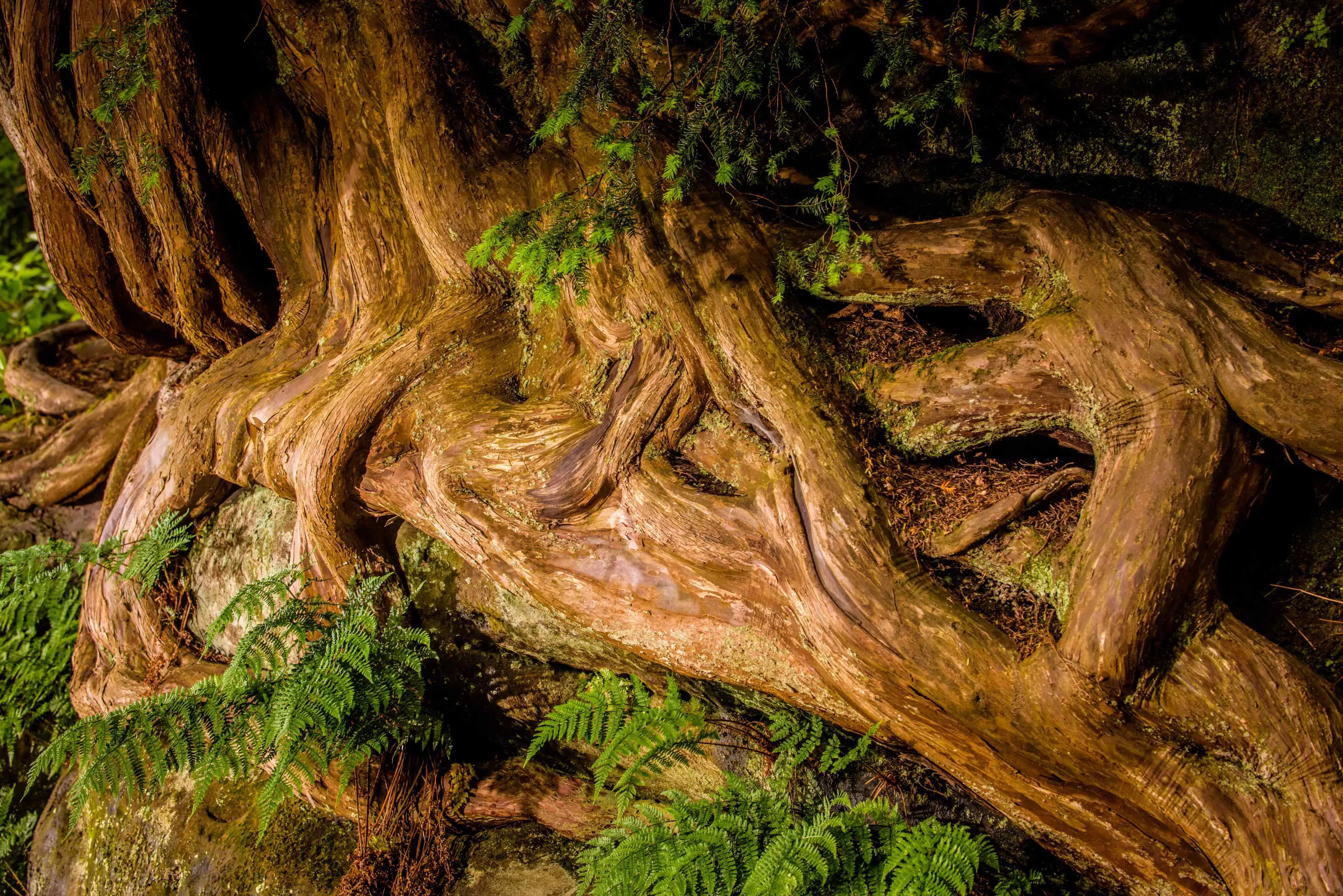KS3 Woodland discovery
Pupils discover the ancient woodland habitats of Wakehurst.

Level
Duration
Allocated space
30 pupils
Pupils study the composition, rich biodiversity and role of coppicing in conserving the ancient woodland habitats of Wakehurst. Investigating energy flow in food chains and webs, pupils discuss the implications of feeding a growing world population.
This workshop can be booked on its own or together with Why do trees matter as a whole day visit.
Learning outcomes
We design our sessions to match the learning outcomes in the national curriculum. Our sessions have a cross-curricular approach and are tailored to suit the educational needs of your group. We aim to give pupils opportunities to work scientifically in areas that are difficult or impossible to create in the school environment.
Pupils will have the opportunity to:
- connect with nature in the woodland to appreciate its importance
- understand the structure of a woodland and create a field sketch of the different vegetation layers
- survey woodland plants using quadrats and discuss working scientifically
- identify and learn about woodland invertebrates, and discover how to look for clues for larger woodland animals
- understand coppicing and its importance in conservation - how can woodland products be harvested whilst also conserving biodiversity?
- discuss current conservation issues
- build food chains and a class food web
- understand energy flow and apply this to current environmental challenges such as sustainably feeding a growing population.
Curriculum links
This KS3 visit supports and enhances the Science and Geography curriculum offered in schools.
Geography
- Understand how human and physical processes interact to influence and change landscapes, environments and the climate; and how human activity relies on effective functioning of natural systems i.e. coppicing pros and cons/ rates of woodland clearance
Science
- Build up an extended specialist vocabulary - coppicing, canopy layers
Experimental skills and investigations
- Ask questions and develop a line of enquiry based on observations of the real world, alongside prior knowledge and experience – field sketch, sustainability of coppicing
- Use appropriate techniques, apparatus, and materials during fieldwork and laboratory work, paying attention to health and safety – quadrat, handling invertebrates, hazards moving in woodland
Interactions and interdependencies / Relationships in an ecosystem
- The interdependence of organisms in an ecosystem, including food webs. Food chain and game.
Genetics and evolution. Inheritance, chromosomes, DNA and genes
- The importance of maintaining biodiversity of woodland
Chemistry
Earth and atmosphere
- The carbon cycle - carbon stored in woodland
